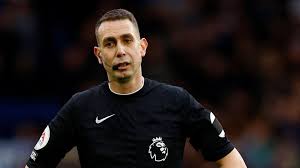
Justice Oyindamola Adesola Ogala of a Lagos State High Court sitting in Ikeja has sentenced a middle age man, Moses Haruna to death by hanging, after the court found him guilty of offence of murder.
Justice Ogala who pronounced the convict guilty of the two-count charge of conspiracy to murder and murder offences preferred against him held that the prosecution has proved their case beyond a reasonable doubt as stipulated by law.
The court therefore sentenced the convict to death without any option for killing one Oriyomi Out two years ago at Anthony village Lagos.
The convict was arraigned before the court in November 2020 on the two count charge, which he pleaded not guilty.
Click To Read: UNILAG Driver Sentence To Life Imprisonment For Defiling Minor
He was accused of conspiracy to murder contrary to section 233 of the criminal law, CH 17, vol. 3 laws of Lagos State 2015 as well as Murder contrary to section 223 of the Criminal Law, CH17, vol.3 laws of Lagos State 2015.
The particular of the offence was that Haruna and two others (now at large) “on or about the 13th February 2020 at Anthony Village playing Ground, Lagos State, in the Ikeja Judicial Division did conspire to kill one Oriyomi Out (M)” , which incident happened “at 05:00hrs at Anthony Village playing Ground, Lagos State, in the Ikeja Judicial Division did conspire to kill one Oriyomi Out (M) by stabbing him on the head, chest and side with a knife and hitting him on the head with an iron bar.”
The trial lasted for about one and half years and eventually the court concluded the trail and found the convict culpable.
Read Also: Court Sentences Lagos Prince, Oyekan to death
Justice Ogala in her judgement held that the prosecution has sufficiently proved the charge of murder contrary to Section 223 of the Criminal Law C17, Vol. 3, Laws of Lagos State 2015 against the defendant and pursuant to the provision of Section 222(1) of the Criminal Law of Lagos State 2015 is therefore convicted thereof pursuant to the provision of pt. 22 Section 310 of Administration of Criminal Law of Lagos State (2015) .
“The sentence of the court upon you Moses Haruna is that you be hanged by the neck until you be dead and may God have mercy on your souls.”
Moment he was convicted, the convict broke down and was immediately handcuffed by the warden from the Correctional Center.







